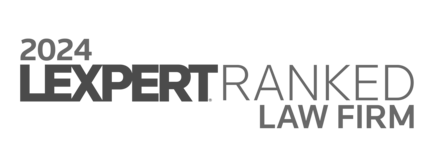- BarTalk, 1.12.15
It was so simple in the old days. The filing system was secured by lock and key. The communication “platforms” were writing a letter, setting up a meeting or speaking on the telephone. Any risk of interception by unauthorized third parties was negligible.
Then technology came along and ruined everything. Technology changed the way lawyers store and access their client data. It’s only really now, in the age of high profile hacks, that lawyers are starting to question where their data goes when it is in transit and where it lives when it is at rest on a server.
The decision for law firms on where to store data is not an easy one, for there are many benefits and risks to take into account. The choices come down to storing data on local hard drives or USB sticks (not recommended), on a shared drive on a network, or somewhere on the cloud.
- e-Commerce 2016, 27.11.15
Reproduced with permission from Law Business Research Ltd. This article was first published in Getting the Deal Through: e-Commerce 2016, (published in July 2015; contributing editor: Robert Bond, Charles Russell Speechlys). For further information please visit www.gettingthedealthrough.com.
- 11.15
Keith Bergner was featured in the November 2015 issue of BCBusiness magazine in one of the main articles, "The Calling," by Kerry Banks. The article discusses how, "In light of recent court rulings, the need to consult and work with First Nations has never been more important for B.C. companies - and the need to hire expert legal counsel never greater."
- 20.11.15
Chris Sanderson was interviewed by Lexpert magazine in the article, "Regulators Decide: SCC", that appeared in their November/December 2015 issue. Chris discussed the recent Supreme Court of Canada's companion decisions in Atco Gas and Pipelines Ltd. v. Alberta and Ontario v. Ontario Power Generation Inc.
- 12.11.15
This paper discusses contract law issues including decisions of relevance to commercial lawyers and business leaders giving a snapshot of particular principles of interest that arose in case law over the past 12 months.
- 6.11.15
Toby Kruger, John Olynyk and Keith Bergner discuss the Yukon Court of Appeal's decision in the Peel River case that they first reported on here. The decision focussed on whether the Yukon Government properly followed the land use planning process set out in three modern land claims agreements in the development of a land use plan for the Peel River region. The Court of Appeal largely agreed with the lower court that the Yukon Government had not followed the proper process in making extensive changes to a land use plan prepared by an independent regional planning Commission. However, the Court of Appeal also confirmed that the Yukon Government has a broad power to make land use decisions for Crown lands in the territory, as long as those decisions are made in a manner consistent with the treaties, interpreted in a generous, purposive manner, and consistent with the honour of the Crown. Accordingly, the Court of Appeal sent the parties back to the point at which the process failure began, in contrast to the trial judge, who would have sent the parties back to the final stage of the land use planning process. As a result, while the Yukon Government may have lost the process battle, it won the war over the more fundamental issue of its power to make land use decisions for Crown lands in the territory.
Read more here.
- 4.11.15
In late October, the Information and Privacy Commissioner for BC (the “Privacy Commissioner”) released a scathing report on the BC Government’s response to an access request filed with the Ministry of Transportation and Infrastructure regarding meetings about missing women and the Highway of Tears. The report (Investigation Report F15-03 – Access Denied: Records Retention and Disposal Practices of the Government of British Columbia) was issued following the Privacy Commissioner being alerted to the BC Government’s failure to properly respond to requests for access to information pursuant to the Freedom of Information and Protection of Privacy Act (“FOIPPA”), which requires a public body to provide access to “all records in the custody or under the control of a public body”. This article will focus on guidelines, stemming from this report, which organizations should consider to encourage adequate responses to requests for information.
- Financier Worldwide Magazine, 10.15
Craig Ferris participated in a Financier Worldwide Magazine panel on managing and resolving mining & commodities disputes.
- Fall 2015
Karen MacMillan and Khaled Abdel-Barr's article on "Moving Towards Sustainable Development: How Canadian Mining Companies Are Leading By Example" was published in the Lexpert Special Edition on Leading Canadian Lawyers in Global Mining in the Fall of 2015. The article discusses how many Canadian mining companies are fulfilling their corporate social responsibility and in doing so are providing lasting and meaningful economic and social growth to affected stakeholders.
- The 2015/2016 Lexpert CCCA/ACCJE Corporate Counsel Directory and Yearbook, 14th Edition, 28.9.15
Canada’s economic future is dependent upon energy and natural resource development and therefore inextricably linked to the rights, interests and influence of Canada’s Aboriginal peoples. Despite considerable advancement in the domestic law of consultation and accommodation, there is growing unrest and dissatisfaction among Aboriginal communities with the current approach to development on their traditional lands. The impact of this unrest and dissatisfaction on resource developers is readily apparent and evidenced by the increased legal, regulatory, financial and reputational risks associated with permitting delays, operational disruptions, protests and negative media attention.
- 23.9.15
JoAnn Jamieson is quoted in the Lexpert Special Edition - Mining article, "First Nations Developments", which discusses how recent court decisions on Aboriginal title are sending tremors through the mining sector in Canada.
- 17.9.15
Lawson Lundell was recently featured in Patrick DiDomenico’s Knowledge Management for Lawyers. In this book, published by the American Bar Association, DiDomenico surveys knowledge management best practices using case studies to illustrate strategies and approaches. Commenting on Lawson Lundell, he notes that the firm has “embraced the principles and ideas of knowledge management and benefited greatly from them.” In particular, DiDomenico calls attention to the fact that the Knowledge Management group, under Euan Sinclair’s direction, “smartly leverages employees in other groups to participate in knowledge management projects and activities.” This collaboration between groups ranging from Information Resources, to Information Technology to Business Development and Marketing, maximizes resources and efficiencies while also serving as a way to break down silos between departments and to enhance the sharing of knowledge. In the book, Sinclair describes his role as follows: “working proactively with practice groups to identify the areas where the scarce KM resources can be applied to best effect.”
- 24.8.15
Deborah Cushing is quoted in the FindLaw Canada article, "Do Fitbits come with workplace privacy concerns?", published on August 24, 2015.
- 29.7.15
John Smith is quoted in the Financial Post article, "Why corporate social responsibility is now part of due diligence", which discusses the importance of corporate social responsibility for companies due to the rising potential of human rights cases and securities class actions, along with new Canadian government regulations.
- 15.7.15
On July 9, 2015, the Supreme Court of Canada released its decision in Strickland v Canada, 2015 SCC 37 (Strickland). At the heart of the case was whether the Federal Court was correct in refusing to exercise its discretion to hear a judicial review of the Federal Child Support Guidelines (the Guidelines) on the basis that the provincial superior courts were a more appropriate venue. While the decision dealt specifically with the Guidelines, the conclusions reached therein apply equally to all federal legislation.
- "Canada's B.C. Court of Appeal Rules Facebook's Forum Selection Clause Overrides Certification of B.C.'s Privacy Act ClaimsBloomberg BNA World Data Protection Report., 7.15
- 22.6.15
Mark Fancourt-Smith was quoted in the Law Times article, "B.C ruling on jurisdiction over Google 'disastrous'." The article discusses the BC Court of Appeal decision in Equustek Solutions Inc. v. Google Inc. He notes, "The impact will be significant for cases involving everything from e-commerce to misuse of confidential information and defamation."
- 15
This article appeared in the 2015 edition of The International Comparative Legal Guide to: Corporate Governance; published by Global Legal Group Ltd, London.
- 22.5.15
Amaan Gangji's article "Room for Optimism in Assessing the Future of Venture Capital in Canada" appeared in TechVibes. In this article, Amaan highlights the rise of Canada's venture capital industry. However he notes that despite the growth, average venture capital financing deal sizes in Canada have remained relatively small in comparison to the world's top ten nations.
- 15.5.15
Valerie Mann was interviewed by Business in Vancouver in the lead up to the CVCA 2015 Conference. In the article, Early stage startups ‘starving’ for dollars as venture capital summit hits Vancouver, she discusses the role that venture capital plays in BC's tech industry.
- 14.5.15
The new Pension Benefits Standards Act was passed by the BC Legislature in May of 2012 and amended once in 2014 (the “New Act”). On May 11, 2015 the Regulations to the New Act were released (the “New Regulations”), which provide further detail and rules that support the New Act.
A comprehensive review of the New Regulations is beyond the scope of this announcement. The Pension and Employee Benefits Law Group at Lawson Lundell will be hosting one or more information sessions in the coming weeks to remind sponsors, administrators and advisors of the rules contained in the New Act and to discuss the effect of the New Regulations.
- Vancouver Sun, 9.5.15
In the article, "B.C. mining firms get creative to raise capital," Stuart Breen examines some creative ways BC mining companies are raising capital during a period of market downturn. In particular, he notes that private equity is becoming a more prominent source of financing in the exploration sector with big, high-profile funds entering the field.
- Business In Vancouver, 5.5.15
The mining industry is often portrayed in the media as being inherently destructive and having little regard for local communities and their environment.
In particular, there have been numerous recent examples in Latin America where local stakeholders have expressed strong dissatisfaction with the impacts of projects on their communities. However, many Canadian mining companies are striving to rebuild the credibility of the extractives sector through their commitment to sustainable practices and to fulfilling their corporate social responsibility. In doing so, they’re acquiring the necessary “social licence” to operate and reducing project risk for all parties. This article examines how mining companies are rising to the task of building positive relationships with the communities in which they wish to operate.
- 1.5.15
- 30.4.15
On March 25, 2015, the Government of Canada published regulations amending the Pension Benefits Standards Regulations, 1985 (the “PBSR”). The amendments include changes to the federal investment rules set out in Schedule III of the PBSR (the “Investment Rules”). As the Investment Rules have been adopted by reference in British Columbia, Alberta, Saskatchewan, Manitoba, Ontario and Newfoundland and Labrador, the changes extend beyond the federal jurisdiction. The amendments are intended to modernize the Investment Rules.
The amendments to the Investment Rules come into force on July 1, 2016.
- Keith Bergner quoted in the Daily Oil Bulletin21.4.15
- 21.4.15
- 20.4.15
Keith Bergner was quoted in the Calgary Herald article "Federal government blasted over land native claim inaction" discussing impact-benefit agreements between industry and Aboriginal groups.
- ICD Report, Spring 2015
- 7.4.15
Marko Vesely was interviewed by media about the lingering defamation suit against John Furlong which remains after he has been cleared of all abuse charges. Marko’s comments appeared in the Globe and Mail, CBC Vancouver News, News 1130, Star Phoenix, Winnipeg Free Press, and the Huffington Post, among others.
- Heather Ferris quoted in The Globe and Mail on Target Corp. announcing plans to retreat from CanadaThe Globe and Mail, 4.4.15
- 3.4.15
Heather Ferris was interviewed by The Globe and Mail on April 3, 2015 for the article, "Target’s retreat tactics raise questions about CCAA," The article discusses Target's Canadian division's application for court protection under the Companies’ Creditors Arrangement Act.
- 4.15
Heather Ferris was quoted in the April 2015 issue of Lexpert Magazine on the feature, "The Ripple Effect, A stressed economy means more restructuring and insolvency and more cost pressures for lawyers."
- 31.3.15
Mark Fancourt-Smith was interviewed by media about the lingering defamation suit against John Furlong which remains after he has been cleared of all abuse charges. Mark’s comments appeared in the Vancouver Sun and his comments appeared on , CBC’s the National, CBC Vancouver News, and Prime with Aaron MacArthur.
- 9.3.15
Lisa Chamzuk interviewed by Canadian Lawyer InHouse editor Jennifer Brown on the CRTC's first fine issued under Canada's Anti-Spam Legislation, which came into effect July 1, 2014.
- The Negotiator, 3.15
On December 16, 2014, the Extractive Sector Transparency Measures Act, contained with the omnibus budget Bill C-43, received Royal Assent. The Act is intended to deter and detect corruption by requiring companies to report payments they make to governments in Canada and abroad. The federal government is implementing the measures as part of international efforts to improve transparency surrounding payments made by companies in the oil and gas and mining sectors to governments. This Bill has only one remaining step for it to become law, which is the Governor in Council making an Order in Council bringing the law into force. There is no timeline for the publication of such an Order in Council—although, based on previous statements by government representatives, we expect that the Act will be brought into force around June 2015.
- 2.3.15
The Supreme Court of the Northwest Territories has granted an injunction to the Tlicho Government suspending the implementation of the Mackenzie Valley “Superboard” legislation. Creation of the Mackenzie Valley “Superboard” is contemplated in amendments to the Mackenzie Valley Resource Management Act (MVRMA) contained in the Northwest Territories Devolution Act, whose effect would be to collapse the functions of the Wek’eezhii Land and Water Board (WLWB), the Sahtu Land and Water Board, and the Gwich’in Land and Water Board into one single land and water board – or “Superboard”. The injunction means that the existing land and water boards will continue to exist until the underlying issues in this case are determined, including a determination of whether the Superboard legislation is unconstitutional because it is contrary to Tlicho Land Claims Agreement.
Read more here.
- Listed Magazine, 27.2.15
In a first-ever judgment last June, the Supreme Court of Canada awarded the Tsilhqot’in First Nation aboriginal title to 1,700 square kilometres of territory in the B.C. interior. This article, published in Listed Magazine, examines what it means for mining and resource development in Canada.
- 25.2.15
This publication was designed to ensure trustees are aware of how essential it is that they understand their legal duties, what to watch out for, and how to limit their exposure to liability.
- Compliance with Confidentiality Orders: The Ethics of Confidentiality - Preventing Data Leaks and Dealing with Their ConsequencesRegulatory Boards and Administrative Law Litigation, 15
- Globe and Mail, 13.2.15
- 2.15
- 2.15
- 10.2.15
Lawson Lundell LLP is pleased to announce that it took home the award for Firm of the Year for Energy/Resource Litigation and was a finalist in four other categories at Benchmark Canada’s third annual awards ceremony, held last Thursday night at the InterContinental Hotel in Toronto.
- 10.2.15
- 4.2.15
Lawson Lundell LLP is pleased to welcome Angela Austman, an experienced corporate finance and securities lawyer, as a partner based in the Vancouver office.
- 3.2.15
On January 27, 2015, the federal government accepted the Nunavut Impact Review Board (NIRB)’s recommendation — submitted in October 2014 and supported by 127 terms and conditions — to approve Agnico Eagle’s Meliadine planned gold mine in the territory’s Kivalliq region. “It is evident that the board met its primary objectives … to protect and promote the existing and future well-being of the residents and communities of Nunavut, to protect the eco-systemic integrity of the Nunavut settlement area and to take into account the well-being of residents of Canada outside of the Nunavut settlement area,” Bernard Valcourt, Minister of Aboriginal Affairs and Northern Development, said in a Jan. 27, 2015 letter to the NIRB.
The Meliadine project, about 24 kilometers north of Rankin Inlet, will consist of one underground mine and five open pits, with a network of access roads, including, eventually, a two-lane all-weather road to the nearby Kivalliq community. During its construction phase, the project would employ about 1,000 people, and about 750 people after mining operations start up. Following issuance of the NIRB Project Certificate, Meliadine will proceed to the operational permitting phase.
Lawson Lundell was counsel to Agnico Eagle during the environmental assessment process, including the public hearings held before the NIRB in Rankin Inlet, Nunavut during August 2014, with a team which included Brad Armstrong, Q.C., Christine Kowbel, Toby Kruger, Jennifer Nyland and Mia Chung.
- The Northern Miner, 22.1.15
Keith Bergner, John Olynyk and Toby Kruger wrote an article which appeared in the Northern Miner on the Yukon Supreme Court's decision to strike down Yukon government’s Peel watershed regional land use plan.
- 15.1.15
Amaan Gangji's article "New Anti-Spam Legislation Impacting the Installation of Computer Programs Now in Force" appeared in Techvibes. In this article, Amaan examines the provisions in section 8 of CASL which aim to curtail malicious software such as malware and spyware by requiring express consent for the installation of computer programs on another person's computer system and mandating enhanced disclosure if the software performs certain prescribed functions. These provisions came into force on January 15.
- 10.12.14
Craig Ferris spoke to the Legal Post about lawsuits faced by mining companies over foreign activities








